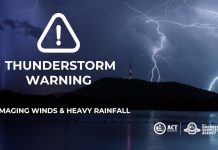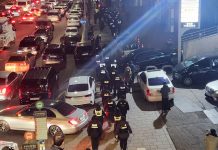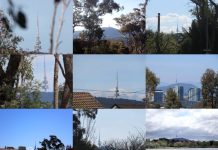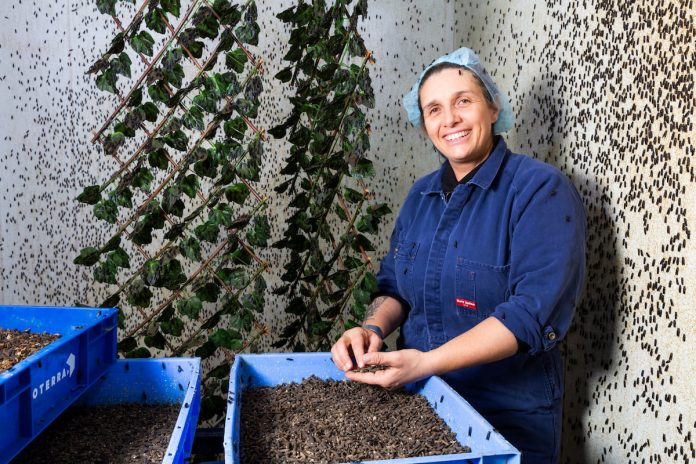
UPDATE: With the ACT going into lockdown from 5pm today, Thursday 12 August, many events will be postponed, cancelled or moved online where possible. Check the National Science Week website for details: scienceweek.net.au/your-state/act/
How can we ensure our plates are sustainable?
As part of National Science Week, 14-22 August, a Canberra food festival is looking to the future: what will food look like in the years to come? How will we produce it and how can we ensure our plates are sustainable?
Served With a Side of Science will see workshops and events across the ACT look at how we consume food and the effect on our environment. As well, Canberrans will get a chance to look behind the scenes at some of the ACT’s most innovative businesses that are transforming the way we look at food, waste, and sustainability.
One such business is Goterra, a waste management company harnessing the power of insects to process food waste.
“We farm insects to do jobs, and we build robotic systems to empower those insects to do jobs,” says Goterra CEO, Olympia Yarger.
“We farm two types of insects here, black soldier fly, which are a non-pest, non-vector, fly species, and then we farm mealworms which are a beetle that we farm for human consumption.”
Ms Yarger says the capacity for us to produce enough protein to feed the population in 2050 can’t be realised – “we have a 20% shortfall” – which is where insects come in.
“We need animals that can be raised on commodities that are currently not taken by conventional agriculture, and we need to be able to raise our food in climate controlled, non-arable locations.”
Ms Yarger says insects farmed to feed both animals and humans don’t require sunlight, water or land to produce kilos of protein, and so are more stable in their production capability.
The next step, she says, is getting over the ‘ick factor’ and getting people to understand how to use and consume insect protein.
“I think what’s changed is people care more about trying to … make meaningful changes to contribute to saving the world and being sustainable.
“Our concern over what we’re doing to the planet is bigger than what our ick factor is.”
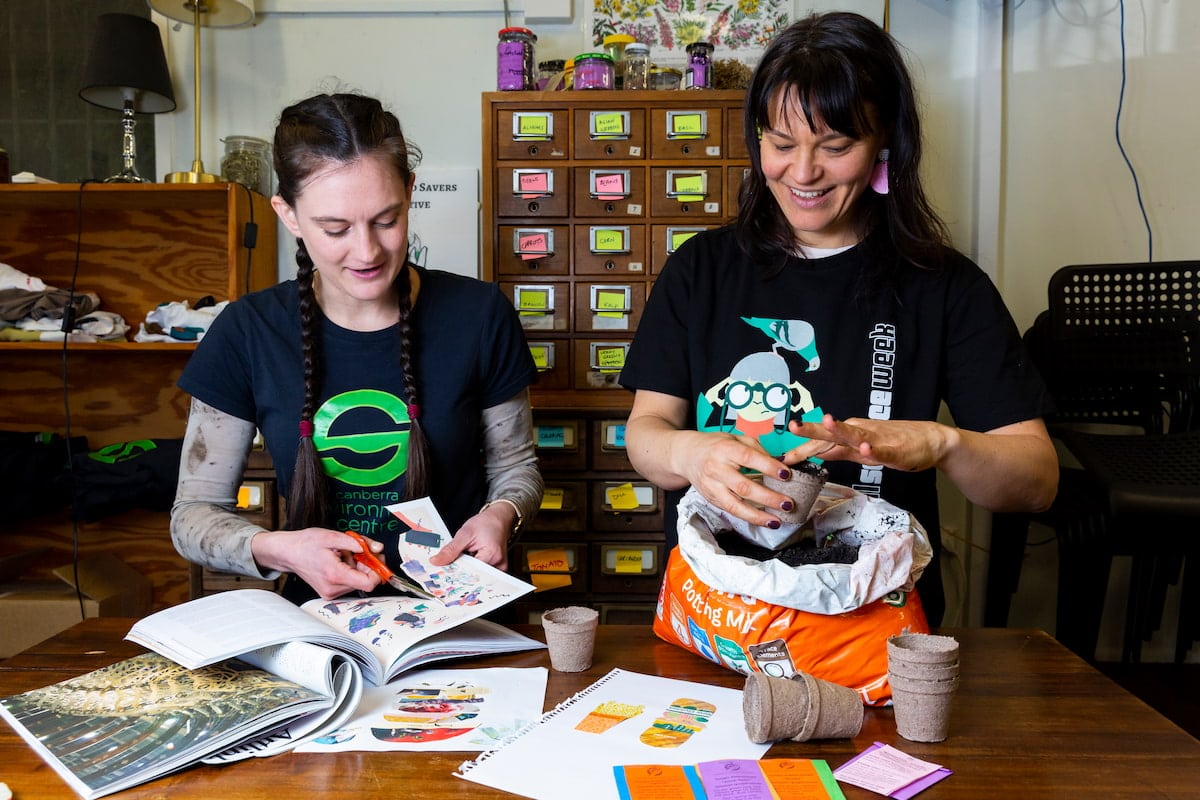
From little things, big things grow
The Canberra Environment Centre (CEC) will be looking ahead for Science Week this weekend, too, asking their workshop participants to imagine the future of food.
The ‘Maker Burger’ workshop, for primary school-aged children, will look at our habits in the kitchen and at the shops, and educate future generations on more sustainable practices when it comes to sourcing and preparing food.
“The whole idea is ‘what is sustainable food?’ And why you need to think about how sustainable your food is before you buy it,” says CEC workshop facilitator, Julie Boulton.
“Without food … we don’t have a future.
“With more and more people on the planet, the pressure on our food systems is growing … there are things that we can all do that we’ve got control over, that we can start making some shifts in what we’re doing now, which will benefit our future.”
Participants will prepare a burger collage made with recycled materials and discuss the ingredients and their impact on the planet. They’ll also plant their own tomato seeds to take home to start their own garden, and leave armed with some simple tips on creating a more sustainable kitchen.
“We’re going to get them to think quite deeply about tomatoes and where the tomatoes they’re eating might have come from, and how sustainable they are, but on multiple levels,” says Chrissie Atkinson, CEC’s workshop coordinator.
“So maybe how far they’ve travelled, how they’re packaged, and how they were grown in the first place.”
As part of Science Week, Served with a side of science: A Canberra food festival will run all weekend, 14-15 August; visit inspiringtheact.org.au for more and to find an event.
Get all the latest Canberra news, sport, entertainment, lifestyle, competitions and more delivered straight to your inbox with the Canberra Daily Daily Newsletter. Sign up here.

